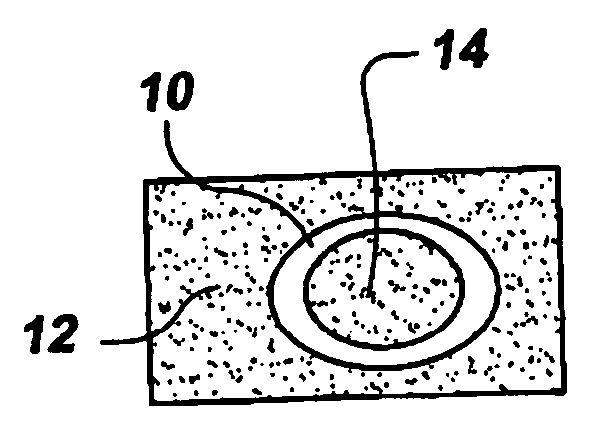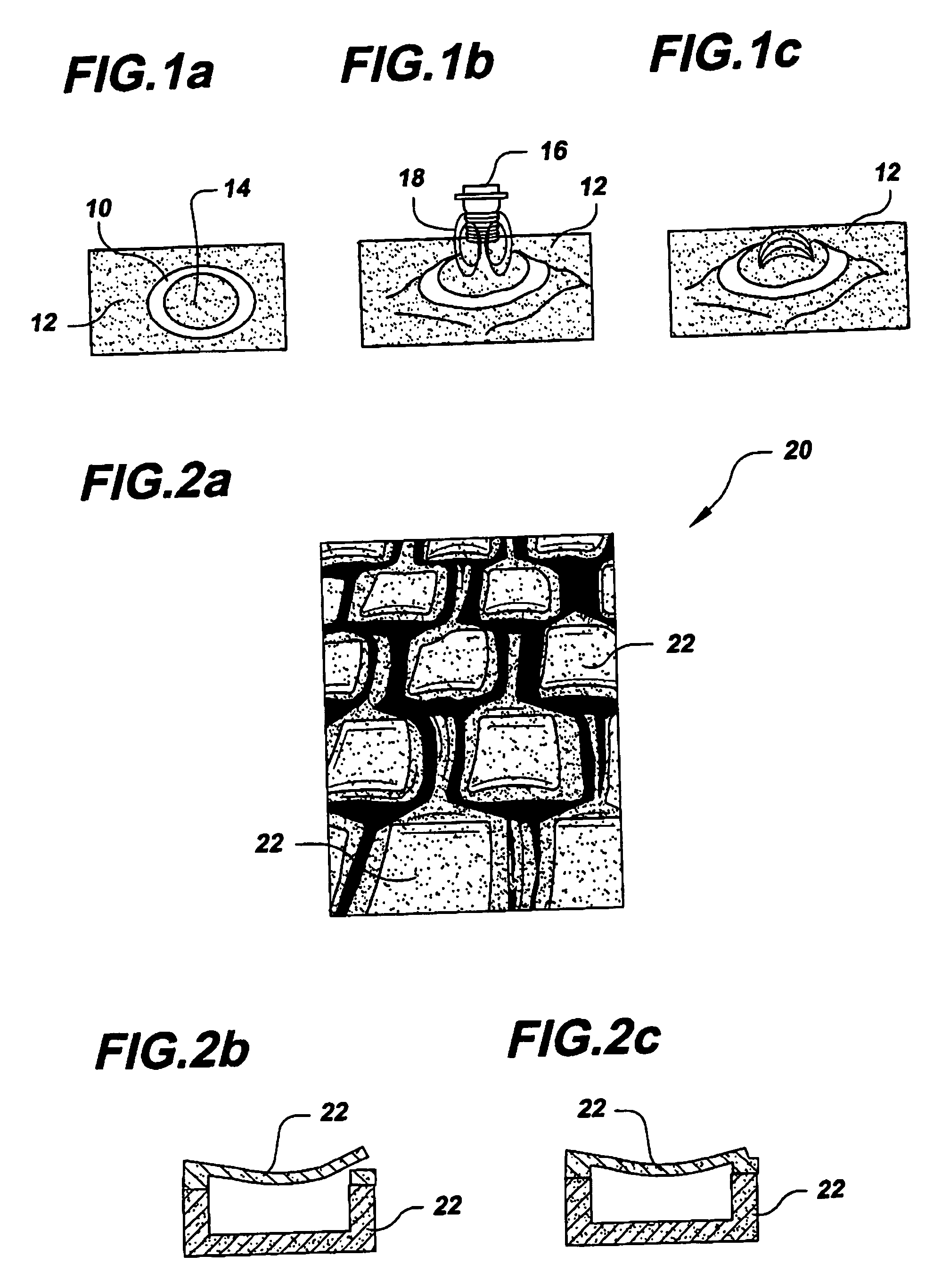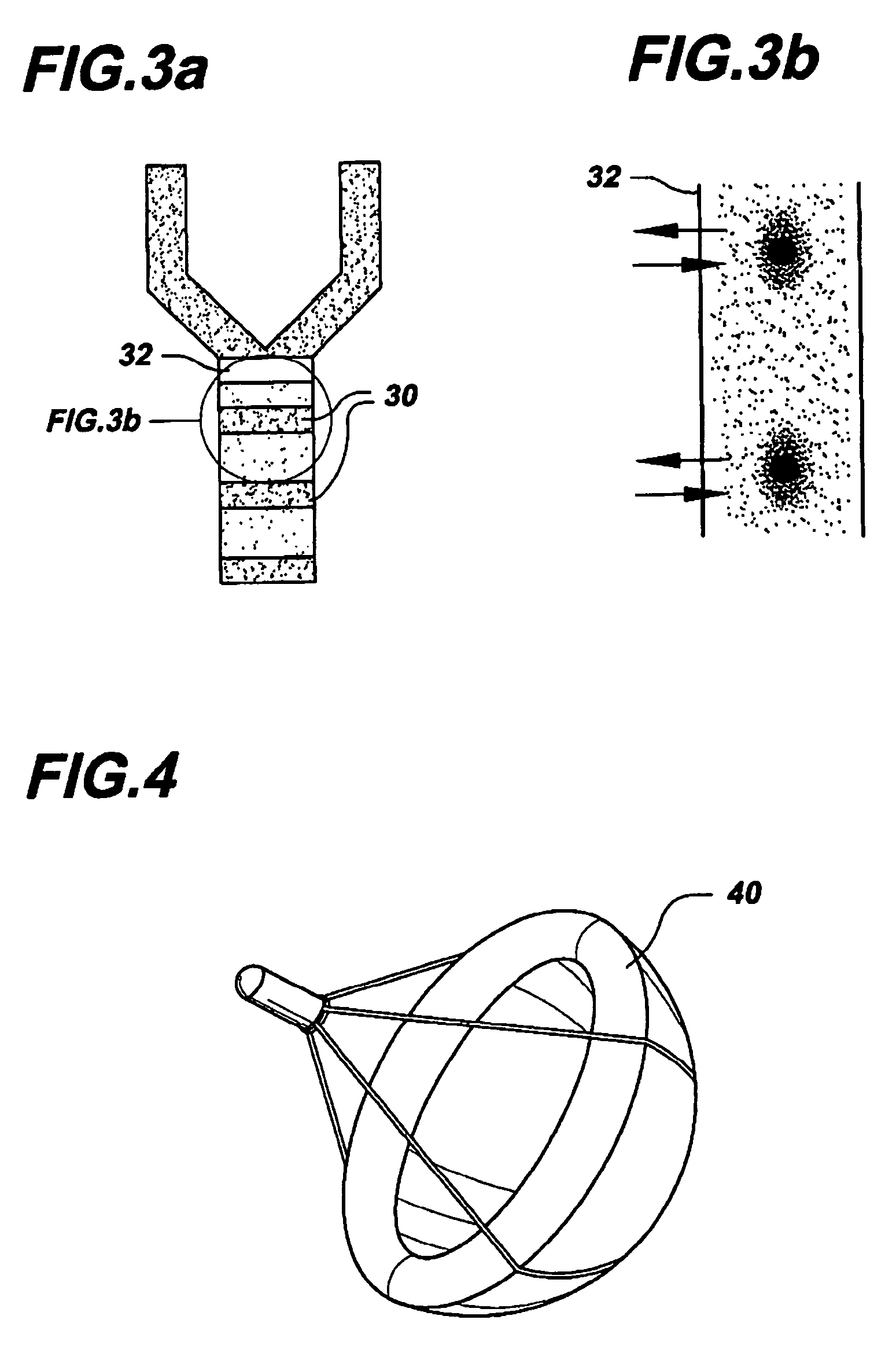Magnetostrictive thin film actuator
a thin film actuator and magnetic restriction technology, applied in the field of micro and nanoswitching actuators, can solve the problems of thermal actuation, slow response and control, no opportunity for long-term shape memory effect, etc., and achieve the effect of enhancing fluid mixing in the channel
- Summary
- Abstract
- Description
- Claims
- Application Information
AI Technical Summary
Benefits of technology
Problems solved by technology
Method used
Image
Examples
Embodiment Construction
[0030] Magnetostrictive smart materials (MSM) change their length when a magnetic field is applied or generate a magnetic field in response to applied pressure. The present invention is based on their potential for use in thin film actuators. They are often referred to as “smart materials” because they convert a form of energy into motion. Other smart materials include electroactive polymers, magnetic and thermal shape memory alloys, and piezoelectric ceramics. Each of them directly converts electrical, magnetic or thermal energy into motion. Because of these properties, smart materials are very attractive for the development of micro-actuators.
[0031] Magnetic smart materials have two key advantages over most other smart materials. The first is that that they can be activated remotely. Unlike electrostatically actuated devices, which require electrical contracts, traces, and an on-chip power source, magnetically actuated devices can be put on chips without a power requirement. Sinc...
PUM
| Property | Measurement | Unit |
|---|---|---|
| magnetostrictive | aaaaa | aaaaa |
| magnetic field | aaaaa | aaaaa |
| flexible | aaaaa | aaaaa |
Abstract
Description
Claims
Application Information
 Login to View More
Login to View More - R&D
- Intellectual Property
- Life Sciences
- Materials
- Tech Scout
- Unparalleled Data Quality
- Higher Quality Content
- 60% Fewer Hallucinations
Browse by: Latest US Patents, China's latest patents, Technical Efficacy Thesaurus, Application Domain, Technology Topic, Popular Technical Reports.
© 2025 PatSnap. All rights reserved.Legal|Privacy policy|Modern Slavery Act Transparency Statement|Sitemap|About US| Contact US: help@patsnap.com



